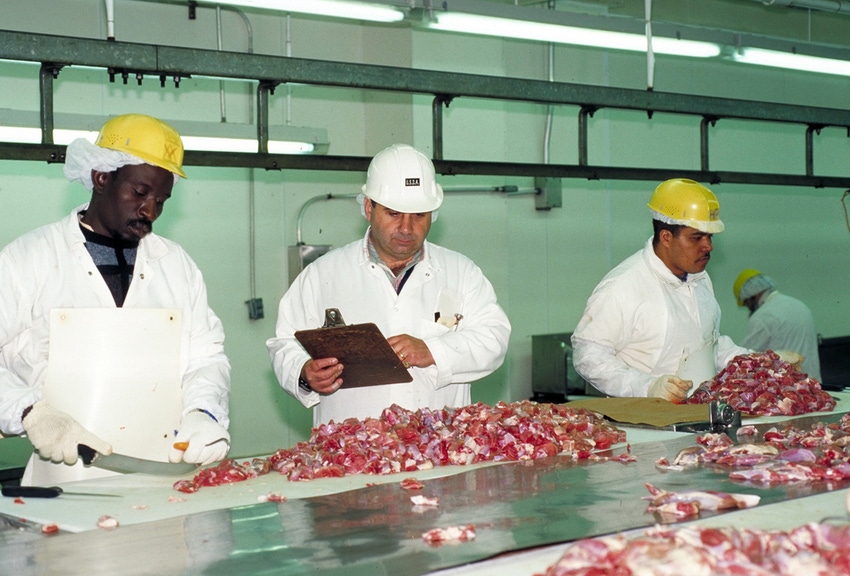I got a haircut!
Policy makers deserve a little slack and the medical community some virtual hugs.
May 16, 2020

I usually use Great Clips here in Windsor, Colo., but they are still not open. In fact, of the 20 Great Clips in the area, only two are open. I finally bit the bullet and took a 120-minute wait to get rid of the shaggy look.
Ten percent, that is how few are open, and my stylist today said that is because most are afraid to come to work because of COVID-19 and the lack of social distancing.
Ten percent. Think what this world would be like if only 10% of packing houses were open; or only 10% of farmers and ranchers were working?
For that matter, what about the truckers who get meat and poultry products from the plants to the retailers, and what if only 10% of groceries were open?
And of course, we could not process live animals into meat and poultry products in amounts necessary to prevent severe protein shortages without workers in the plants, many of which have been shuttered at least temporarily because of high rates of COVID-19 illnesses in the workers.
Last week the number of cattle slaughtered dropped nearly 22% and the number of hogs was down 6%.
And, of course, no slaughter could take place without Food Safety & Inspection Service (FSIS) inspectors who are exposed to the virus on a daily basis.
It was just announced that another FSIS inspector died from the virus in Fort Morgan, Colo. I believe the inspector was the fourth to die, the previous three being from N.Y., Chicago and Louisiana.
There are about 800 federally inspected beef slaughter plants in the U.S., and FSIS has been shuffling inspectors around as plants close and inspectors become ill. So far the effort seems to be working fairly well, but what a burden on the inspectors to have to leave home and family to transfer to a temporary position.
The death rate in the inspection service is nowhere near that of the plant workers, but the FSIS inspector probably drives to work in his or her own vehicle, not public transportation like busses or carpooling.
He or she also probably goes home to a moderately sized home with no grammas or cousins living there in fairly crowded conditions.
And since a good portion of FSIS’s job is to review HACCP and SSOP plans and compliance, the inspectors can now do some of that from the safety of their homes.
Ironically I proposed just such a move when I was at the U.S. Department of Agriculture, a move that would cut down on time spent driving from plant to plant, hours that did nothing to improve food safety, but it sunk like a lead balloon when the union got wind of it.
Now they endorse it, and that is a good thing coming out of this pandemic.
A very bad thing coming out of this pandemic is that food inspections are falling and thus citations and recalls are falling also.
The Food & Drug Administration suspended its inspection of food manufacturers March 18. Since then citations have fallen from about 300 per month to single digits.
USDA used to issue about a dozen recalls per month; they now are down to a couple per month.
I think there are a couple of reasonable reasons for the drop in meat and poultry recalls, and they are not because of lack of inspection in the plants.
First of all, when a stool sample comes back positive for a probably foodborne illness, a city or county or even state public health department usually begins an epidemiological investigation.
Today, they are swamped doing case contact interviews related to COVID-19, and that is reasonable and understandable, but you can’t ask for a recall unless you have indisputable evidence of a link to a source. And you can’t get that evidence if you don’t have boots on the ground to do the research.
There are many whiners who say we don’t have enough investigators because the departments have been underfunded for years.
As an ex-state director of a public health department, I can honestly say you cannot adequately fund and staff for a pandemic that might happen every 100 years.
I think a second reason for the drop in recalls is simply that people are afraid to go to a health care facility for a case of diarrhea and they are trying to ride it out at home.
The fewer cases the health department has a record of, the more difficult it is to trace to a source.
Lastly, people are obviously not eating out nearly as much as before the quarantines hit, thus not putting themselves at the risk of someone else’s negligence. Eating at home is probably safer in the long run, as parents do care about their loved ones more than a grill cook does.
I loved what I did and the opportunities I had as a state health officer in Nebraska and as the undersecretary for food safety at the USDA. But I must admit that I am so glad to not be in a policy making or policy enforcing position in these tough times.
No one has been through this before, and every decision or directive that is made is a best guess and is met with cries of “too much” or “too little.”
Let’s cut our policy makers a little slack, and give virtual hugs to those who are working to feed us and to respond to medical emergencies in the health care field while 36 million are home drawing unemployment, but not usually of their choice.
About the Author(s)
You May Also Like



